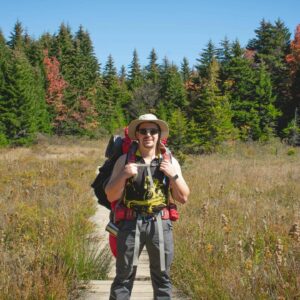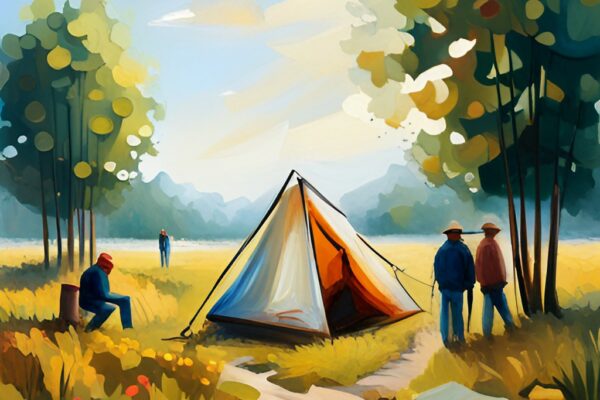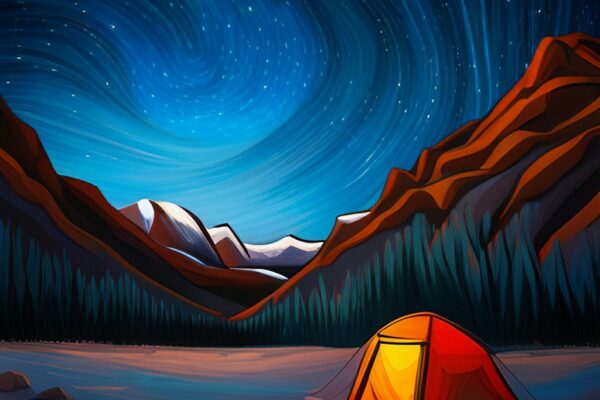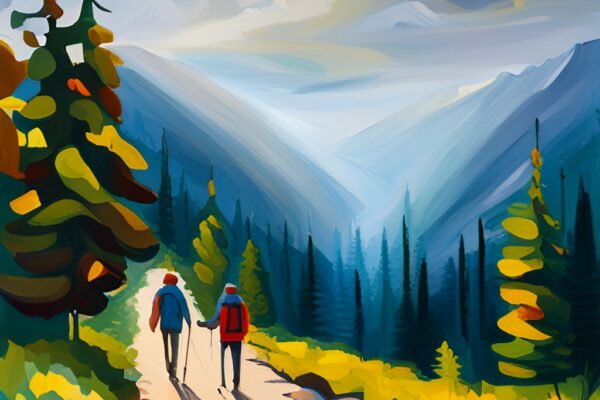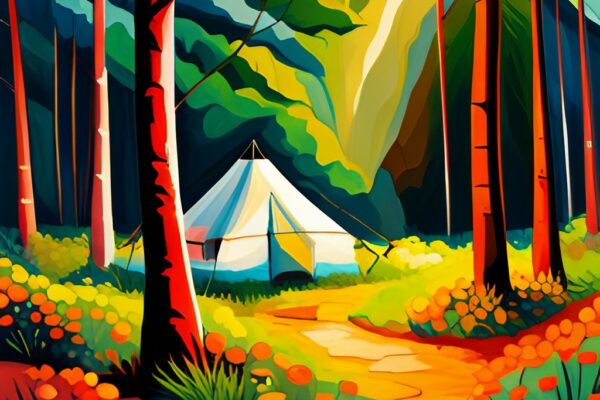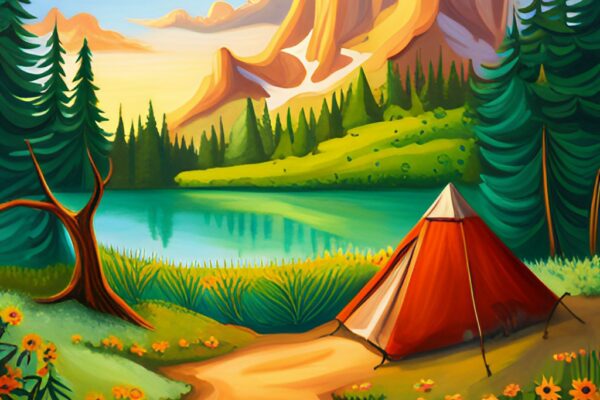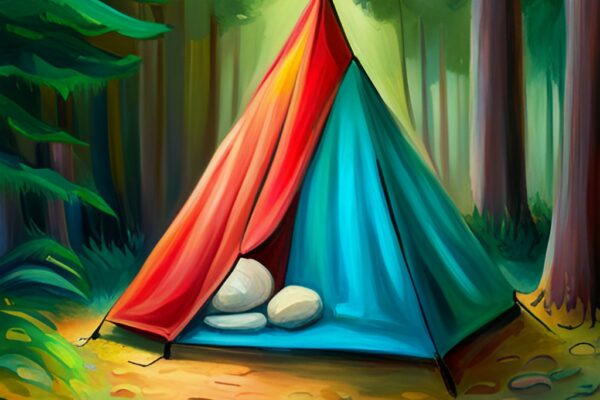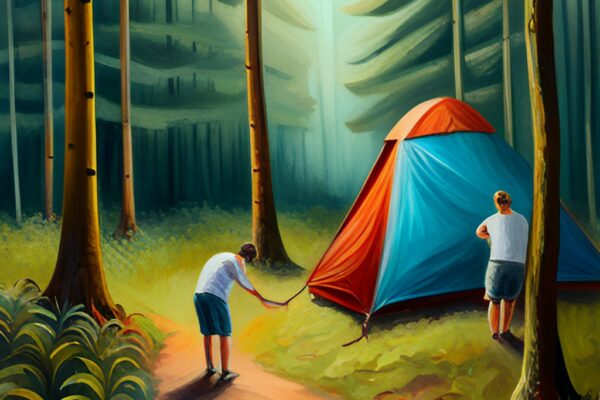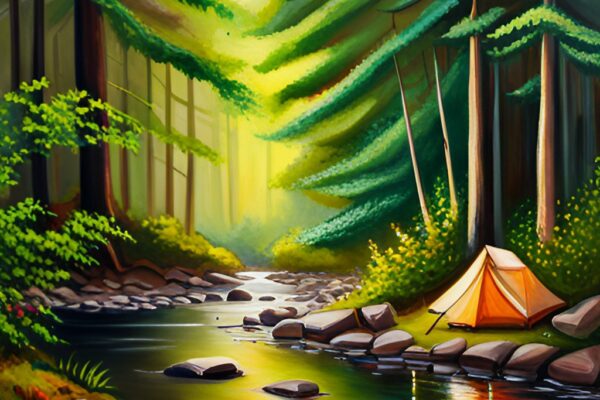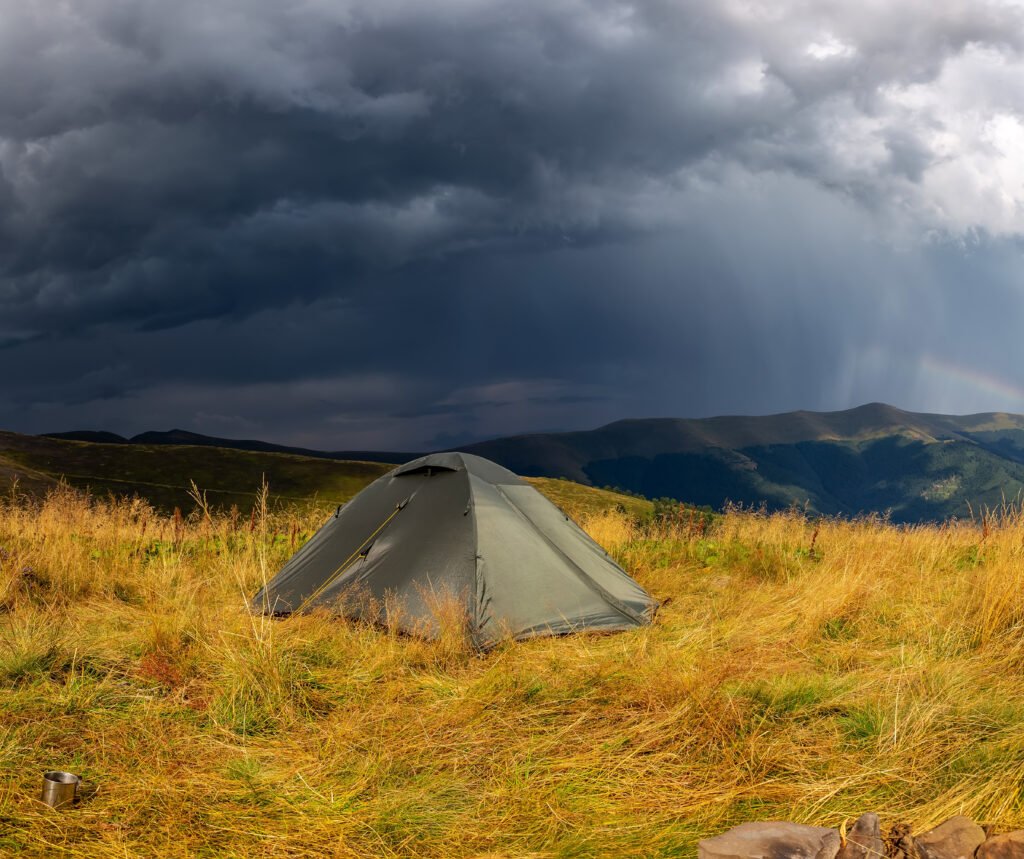
While countless people enjoy camping, there are dangers to prepare for when camping.
Camping can be a dangerous activity due to inclement weather, unsuitable terrain, and active wildlife life. That being said, less than 1% of all campers actually get fatally injured from these hazards. Still, taking the necessary precautions will ensure you stay safe and enjoy your time outdoors.
Camping can be a great way to have some fun and get outdoors at a cheap cost, but anyone going camping should be cautious of the dangers that could cause them harm. We will cover some of the most common dangers of camping and how to prepare for them.
Weather
Weather is a huge component to think about when you’re planning your camping trip. While camping in perfect weather is not the only way to camp, it is so important to protect yourself from dangers that can come from less than ideal weather.
Wind
The wind is, surprisingly, one of the most dangerous kinds of weather to encounter while camping. Wind on its own can be very dangerous to your campsite. High wind speeds can blow tents over if they are not properly staked down. When the wind is combined with dead trees that are still standing, they can be blown over onto you, your tent, or your car, injuring you or preventing you from leaving.
In Manitoba Quebec, in June 2013, a tree fell over onto a tent where a man and his wife were sleeping. The unusually strong winds knocked the tree down, killing the man and injuring his wife.
Even more dangerous than your tent blowing through your campsite is your fire pit. Strong winds blowing through a campsite can cause a fire to get out of control as the wind can blow the sparks in all sorts of directions, putting everything around you in danger. The wind can even pick up hot embers from a recently doused fire and blow them onto your tent, or any nearby trees and foliage. Human-created wildfires are fairly common.
Preparing for strong winds, even if the forecast says nothing about them, will help you have a safer camping trip.
- Avoid setting your tent up near dead or rotting trees. This will cancel out most of the risk of trees falling on you in the night.
- Make sure to properly stake down your tent, and if needed, tie it to nearby trees as well.
- Always double-check that you have put your fire all the way out before going to bed so that there is no chance of winds picking up embers or hot ash.
Lightning
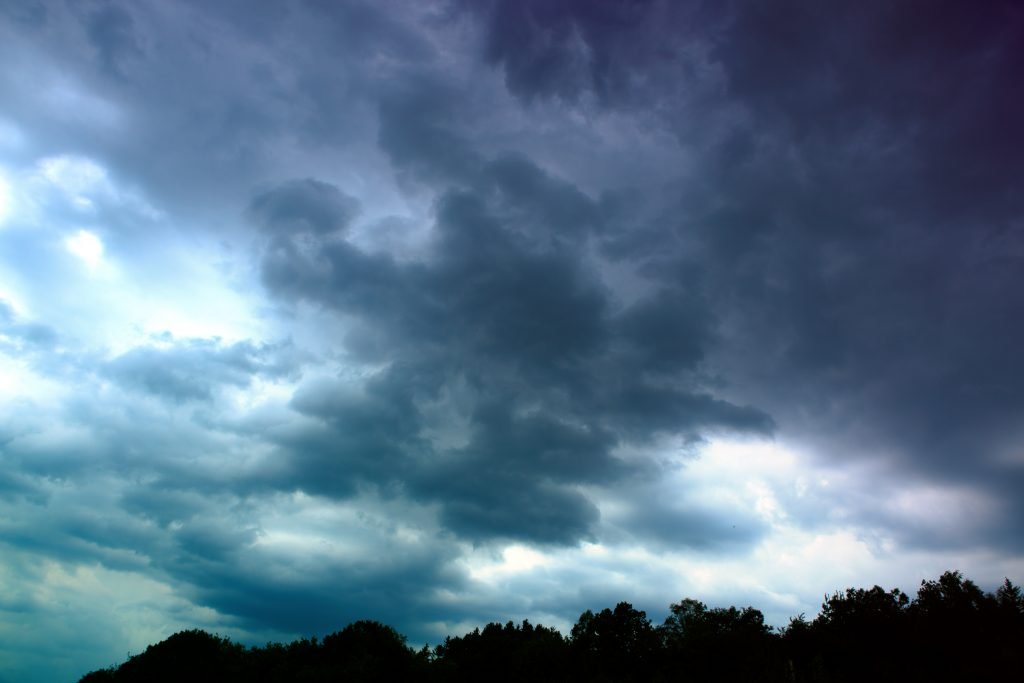
Lightning is less common than strong winds, but it is still important to know how it can be a danger to you. Only 1% of the almost 1000 rain-related deaths in 2017 were from lightning, and luckily, only 1 in 10 people who are struck by lightning die.
To avoid being struck by lightning while camping, the best thing to do is to pick a location that puts you out of harm’s way. Some of the best places to take shelter during a storm are inside large buildings, metal-topped vehicles, and caves.
- Large buildings usually have electrical and plumbing systems running through them, so if lightning does strike the building, the electricity will be directed through the building and away from you. Staying away from wires and metal faucets is an extra precaution that should be taken in case lightning is traveling through the pipes or wires of the building.
- Metal topped vehicles are surprisingly safe to be in during a lightning storm. If lighting should strike the vehicle, the metal exterior will carry the current around you instead of through you. Refrain from touching the steering wheel or doors as lightning travels through them and can hurt you.
- Caves are not always common in the area you are camping in, but if there is a deep cave, taking refuge in it will protect you from lightning. Make sure that you can’t see the entrance for the best protection.
Flooding
Flooding can be very scary when camping. Flooding can put your equipment in danger and it can put you in danger of drowning. Desert camping makes you especially vulnerable to flash floods. Flash floods can come so quickly that you won’t even know what hit you until you and your belongings have been swept away.
If there is very heavy rain, consider leaving camp early.
Flooding can also prevent you from getting back home, so make sure to plan intelligently when choosing your campsite. Pick a place to set up that is a bit higher up. Don’t pitch your tent in a ravine or canyon if you don’t have to, as they are more likely to be flooded. If there is very heavy rain, consider leaving camp early.
Terrain
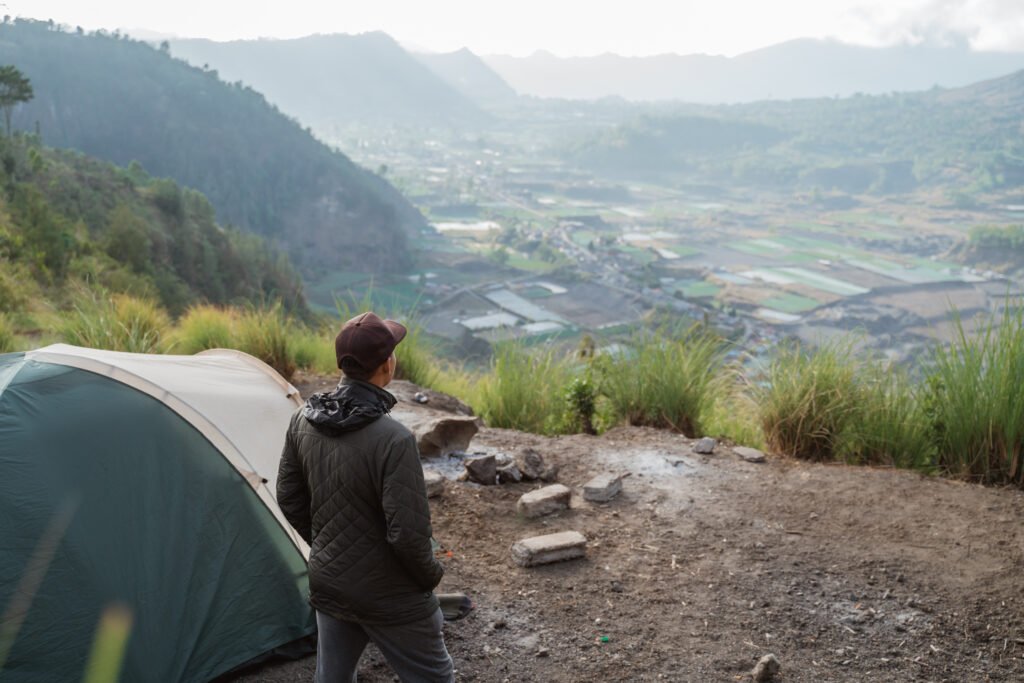
Terrain can be a huge factor in whether you stay safe while camping or not. Some weather hazards like flooding and lightning cross over into this category of dangers, but knowing how to best deal with the terrain where you are camping will help you avoid those dangers better.
Roads
Before you even arrive at your campsite, the roads you are driving on can put you in danger. When on precarious mountain roads, exercise caution by watching your speed and staying focused. A car that is moving too fast can easily veer off the road and roll down a cliff.
Water
The dangers of flooding have been covered, but it is good to be reminded of the dangers of excess water in your camp. When setting up camp, avoid getting too close to running water. This will help keep temperatures around you warmer, lowering your chances of hypothermia. When you are farther from sources of water, your campsite is less likely to be flooded. It can be fun to play in the water during the day, but settling down further from it is safer.
It’s also easy to underestimate the speed of the current. You may get swept away more easily than you expect, so avoid submerging in water, especially if the water level is higher than usual.
Cliffs
Cliffs can be very dangerous, whether you are camping near them or just hiking on them. Always stay away from the edges of cliffs. You never know when a gust of wind or a clumsy companion could knock you off balance and send you down the cliff. No matter how stable it seems, a cliff can crumble under you at any time. Staying away from edges and having a friend with you to help you if you get in trouble are both good ideas.
On May 5, 2021, a University of Kentucky student fell off of a cliff. She was hiking alone and taking videos very close to the edge of a cliff. The trail was slippery from rain, and she slipped off the edge. She passed away from the accident. Hiking near cliffs with a friend or group will help keep you safe. Stay farther away from edges than seems necessary, as anything could happen.
Animals
Animals can be a huge danger to anyone camping in any environment. There are all sorts of animals that are commonly known to be dangerous, as well as animals that seem harmless, or are not talked about as much.
Snakes
Snakes pose a significant threat to any camping in the area. These reptiles can be found in all sorts of climates and terrain, so it is important to always keep an eye out for them. While not all snakes are venomous, it is important to keep your distance instead of taking the risk of getting seriously hurt. Only 6 out of 8,000 snake bites are fatal, but it is important to take every precaution anyway.
If you’d like to learn more, check out our detailed article about keeping snakes away form your campsite.
As long as you stay calm and follow procedure when bitten by a snake, you will be okay.
If you or someone you are camping with is bitten by a snake, here is what you should do:
- Keep the victim calm. Staying calm will help the venom travel through your body much slower, giving you more time to treat the bite.
- Keep the bite area below heart level to reduce the amount of blood flow.
- Make sure to remove any jewelry near the bite and to let the bite bleed for half a minute before cleaning it with water.
- Get to a hospital or emergency room as soon as possible.
As long as you stay calm and follow procedure when bitten by a snake, you will be okay.
Bears
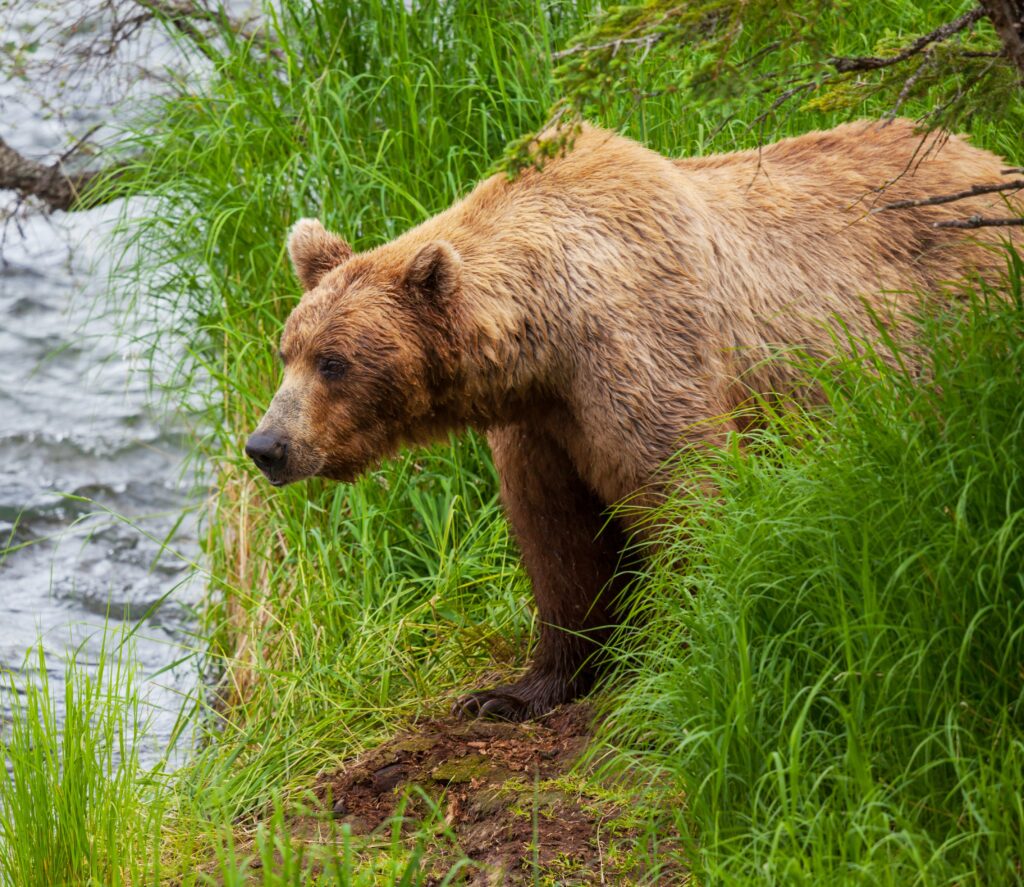
Bears are one of the most common animals that campers are warned about, especially in wooded areas. There are 40 bear attacks worldwide every year, so it is important to take precautions and understand how to behave if a bear is spotted. We have a detailed post on the precautions you should take to avoid a bear attack, but here’s a summary:
- Do not store food or scented products in your tent. Keeping the things that a bear will smell and want will greatly reduce your chances of having a bear try to get into your tent while you are sleeping.
- Keep your camp clean. This means cleaning or throwing out any dishes, paper, or other smelly items, and making sure to clean any grills used. You do not want to leave any smells that a bear would be interested in.
- Hang your food in a tree. This might sound a bit bizarre, but tying your food 10-15 feet high in a tree will ensure that a bear can not reach it and make a mess in your campsite. If a mess is made, it might attract more bears or other unwanted scavengers. This trick is best used when you do not have the luxury of storing these items in your car or camper.
- Discard any trash in bear-safe dumpsters. Do not leave food scraps of any kind on the ground, in the ground, or in your fire pit.
If you do happen to run into a bear, do not panic or run. This could make them think you are prey, and they could attack. Instead, follow these steps to stay safe around a wild bear:
- Identify yourself and slowly wave your arms so the bear will recognize you are human.
- Stay calm and avoid making any sudden movements or high-pitched sounds. Talk low and calmly to the bear so they will not feel threatened. Bears often stand up when they are curious, so do not lose composure if it does so.
- Travel in groups. Large groups make a lot of sounds and are smelly to a bear. They will most likely stay away from a group, as it is often bigger than the bear.
- Do not give the bear food, as that will encourage it to stick around. Do not drop your backpack; it provides protection for you and keeps the bear out of your food.
- Move away slowly and sideways. If the bear follows, stand your ground. Do not climb a tree; both black and grizzly bears can climb trees.
- Leave the area, or allow the bear to leave. Always leave a clear exit for the bear so it doesn’t feel trapped and attacks you.
Plants
Believe it or not, plants can be a huge danger to campers. While plants do not act on their own, reckless campers can find themselves in a lot of trouble with some plants. At least 50 million Americans are hurt by plants every year while camping or otherwise.
Exercise extreme caution when hiking or camping in areas with dangerous plants.
Berries
Unless you are a professional at identifying wild berries and how safe they are, do not eat them. Never eat any wild berries that you find, even if you see other wildlife eating them. Animals have different digestive systems than we do, so even if it is safe for a squirrel to eat, it could make a person very sick.
Leaves
Aside from berries, several plants can greatly irritate the skin or put you in danger. Poison ivy, poison oak, stinging nettle, and poison sumac should be avoided with diligence. These plants will at best give you a very bad rash, and at their worst, give you an allergic reaction that can make it difficult to breathe. Exercise extreme caution when hiking or camping in areas with these plants.

